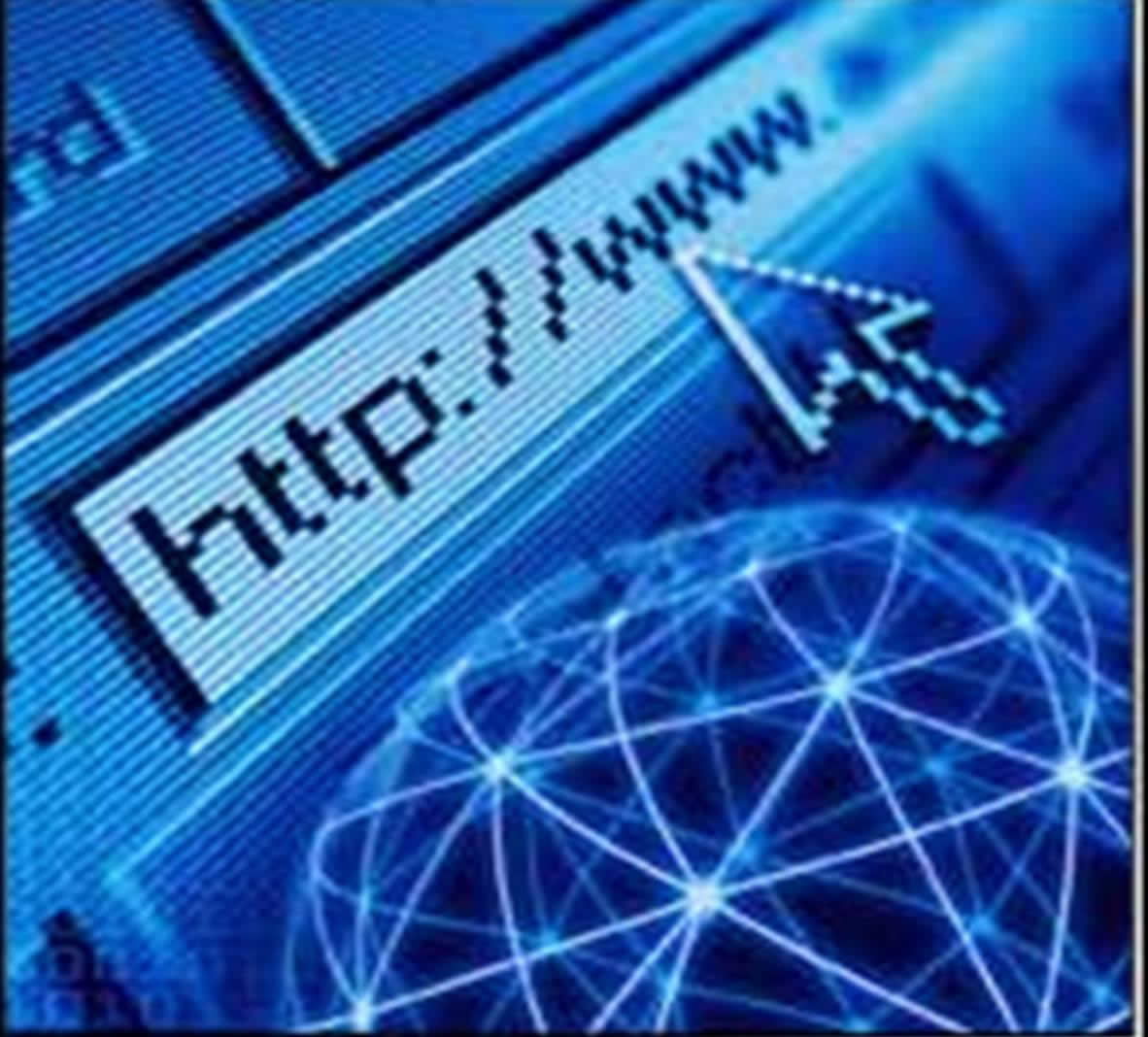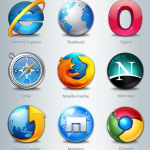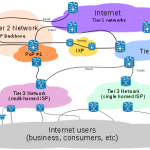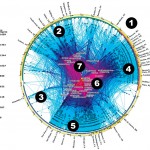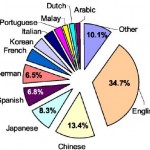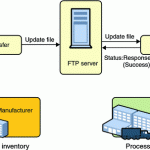Remember the heady days when the Internet was in its infancy and a total novelty? You had to do all manner of technical fiddling to get it to work, broadband had not arrived so you had to rack up huge bills clogging up your landline for hours waiting for sluggish websites to load, and even then only display half the pictures or text you wanted? More than that, things broke all the time in the early days – shopping online was terminally frustrating and the potential for content was barely being imagined.
Even so, compared to the days when, mainframe dumb terminals apart almost all computers were stand-alone and cut off from the rest of the world, the net was a huge leap of networking, and the power contained therein was always about allowing us to communicate more effectively and globally without the cost or restrictions of other media. It was a mega-leap into a world where freedom was all and pretty much anything goes.
Email was an early hit, providing the people you wanted to message also had an email address. And in those days we had not yet discovered that email is frequently a form of anti-communication, used primarily to keep people at arms length and avoid human contact, certainly within organisations.
The first browsers, notably early versions of Internet Explorer and Netscape and other derivatives of the original Mosaic browser, were slow, clunky, insecure and struggled with any but the simplest text-based websites, though they did evolve over time to what we have now.
As net usage started to reach a critical mass, there was the usual bell-curve of responses from both public and private sector organisations. Some thought it was a fad and a complete waste of time and money, therefore did not enter the market until their competitors started getting competitive advantage from their websites.
But equally they will have avoided many of the mistakes made by pioneers. One such, famously, was Toys R Us, which decided one Christmas to launch a website to take orders. This was fantastically successful – the TRU systems were humming with orders. Sadly for them they had not anticipated this level of success, nor integrated their order fulfilment systems with the websites, so teams of temps were taking orders from the website and rekeying them into the stock system for delivery. Many orders were delayed pending this bottleneck and were only fulfilled by January or February. The reputation and share price of TRU took a real hammering, and it’s no surprise that for years afterwards they chose to partner Amazon to ensure the Internet fulfilment business was delivering efficiently.
Amazon were one of a small number of early Internet retailers that stood the test of time and got their business model right, but then it was simply an online version of a mail-order business, complete with warehouses and delivery contracts but no high street bricks-and-mortar presence. Many more failed miserable to make the translation to the new world of 0nline shopping.
More to the point, many new ventures failed entirely because a free model was not sustainable unless you had the critical mass – like Facebook – or mastered the art of selling advertising space – like Google. The so-called “dot-com bubble” saw new ventures being wildly overvalued by markets, then being killed off within the space of a few heady months: boom-dot-bust. The survivors had thought through how to make money, sometimes without a subscription model or selling goods – and put that into practice. If it created more than a flashy brand, it might succeed, and sometimes small companies moved faster than big ones in creating something new but sustainable.
Banks took a while. True, there were and are online banks, some of which died and some which upon closer examination were actually the current banks launching their own new brands. I was doing work with NatWest at the point where their first online banking site was launched, and was coincidentally a NatWest business customer too. The then Chairman, Sir David Rowland (who I later met in relation to an MBA assignment at his Elizabethan manor house in Suffolk) had made a commitment to the market that the site would be launched by a particular date, but it was failing miserably.
I was consigned to do some troubleshooting, only to find three different teams working on the project in three different locations in London, but barely talking to one another. Seems that unlike Toys R Us, they had taken a decision some while before to run the website from an IBM mainframe rather than a farm of small servers. This made it unwieldy, slow and unable to do many of the more advanced functions that people wanted from online banking. It was probably more secure at that time but failed in almost every other way. To cut a long story short, we took some pragmatic decisions, worked on the essentials, cut the nice to haves, and delivered the website with around 85% of its functionality 2 months late, looking slow and horrible, but at least it was there. Online banking has come a long way since then, but I think it was an object lesson in how not to deliver a technical project, let alone satisfy customer expectations.
Over time browsers have improved and the functionality of websites has come on in leaps and bounds, to the extent that it is now embedded in our work and social lives so completely that we are addicted. More than that, the net has turned us into a world of white-faced zombies who stare at our screens all day long, ignore the sunshine, forget fresh air and gain sustenance solely from our computers. For some it is blogging, for others it is online gaming, social networking and/or shopping and/or porn and/or dating sites and/or research and/or chat rooms and/or following live sports events and/or any one of a million other activities; for many more the opportunity to continue working from home – the world now continues 24 x 7.
But the longer it has developed, the net has innovated new ways for human beings to co-operate, which surely is the power contained therein. In other words, the net is a means to an end rather than an end in itself.
While the legitimate marketing machine continues 24 x 7 too, automatically generating emails and ways to persuade us to take an interest. Not that I ever wanted them, but I seem to receive stacks of largely newsletters. They would claim to have gained my permission so to do in keeping with the data protection act, though I almost always either click or unclick the boxes to ensure no such communications are received. Where I can I unsubscribe as quickly as possible, yet an avalanche of marketing materials always seems to find its way into my inbox.
This is not the same as spam, which as the Wikipedia definition points out is unsolicited:
Spam is the use of electronic messaging systems to send unsolicited bulk messages indiscriminately. While the most widely recognized form of spam is e-mail spam, the term is applied to similar abuses in other media: instant messaging spam, Usenet newsgroup spam, Web search engine spam, spam in blogs, wiki spam, online classified ads spam, mobile phone messaging spam, Internet forum spam, junk fax transmissions, social networking spam, television advertising and file sharing network spam.
Spam might well be mostly a form of transmitting unwanted adverts to as many people as possible in the certain knowledge that there is someone, somewhere who will be so gullible as to part with hard-earned cash for the promises contained there in (almost all fraudulent, you suspect), but there are plenty more people out there with bad intent.
The trouble is that this freedom comes at a price. Although some countries try to do so, the net is unpoliced. Even in 2012 authorities in democratic countries are struggling to come to terms with the fact that criminal intent can go hidden on the net, and most laws were written at a time when no global communication medium was even dreamed of.
For example, Pfishing scams, mostly run from Eastern Europe by either email or infiltrating many legitimate sites, try to lure the vulnerable in the same way. Some will attempt to obtain money, others to use information to commit identity theft, such as credit card fraud. Then there are viruses, child porn rings and any number of other possibilities. But if monitoring or restrictions are imposed there will be many who complain with some justification that, like China, this is “big brother” watching over us and restricting our freedom on the net.
If you want to gain the benefits of the net, you have to be aware of the risks: caveat emptor. But then again, security is improving, if not as fast as the hackers can get inside our heads and computers. Security systems can create a fortress, but the weakest part of the chain is always the user. We can’t remember long and complex passwords involving letters, numbers and other spurious characters, so we tend to use the same passwords way too often. If anyone can hack into your computer, they only need one password and they can probably get into a lot more. Whether security cards, retinal scans or other forms of biometric data become central to our net access in future we will have to wait and see.
Since the net is organic and not planned in any systematic way, it is a hotbed of opportunity, to the extent that those not using it are in a distinct minority and the default position is for many organisations to offer their website and/or email address as the preferred form of communication. But plans are afoot to revolutionise it further. You’ve heard that our government intends to extend ultra-fast broadband access to all parts of the UK (would be nice if they started with my area!), which means ultimately the Net 2.0 or maybe 3.0 can start revolutionising our lives yet further by integrating content and communication into pretty much any device.
The example given was that the fridge and freezer would monitor you shopping and automatically order replacements for everything you needed, though as with mobile networks the probability is that the “killer app” that will knock us dead has not yet been invented, and when it is it may take some while for us to realise the potential. With mobile data networks, using our phones for cash payment was expected to be a huge revenue earner, but lack of trust in security systems meant that it has hardly taken off at all. Who knows what will work, but if it’s going to make us sit up and take notice it has to be so core to how we live our lives that it will rapidly become indispensable. Any ideas?

